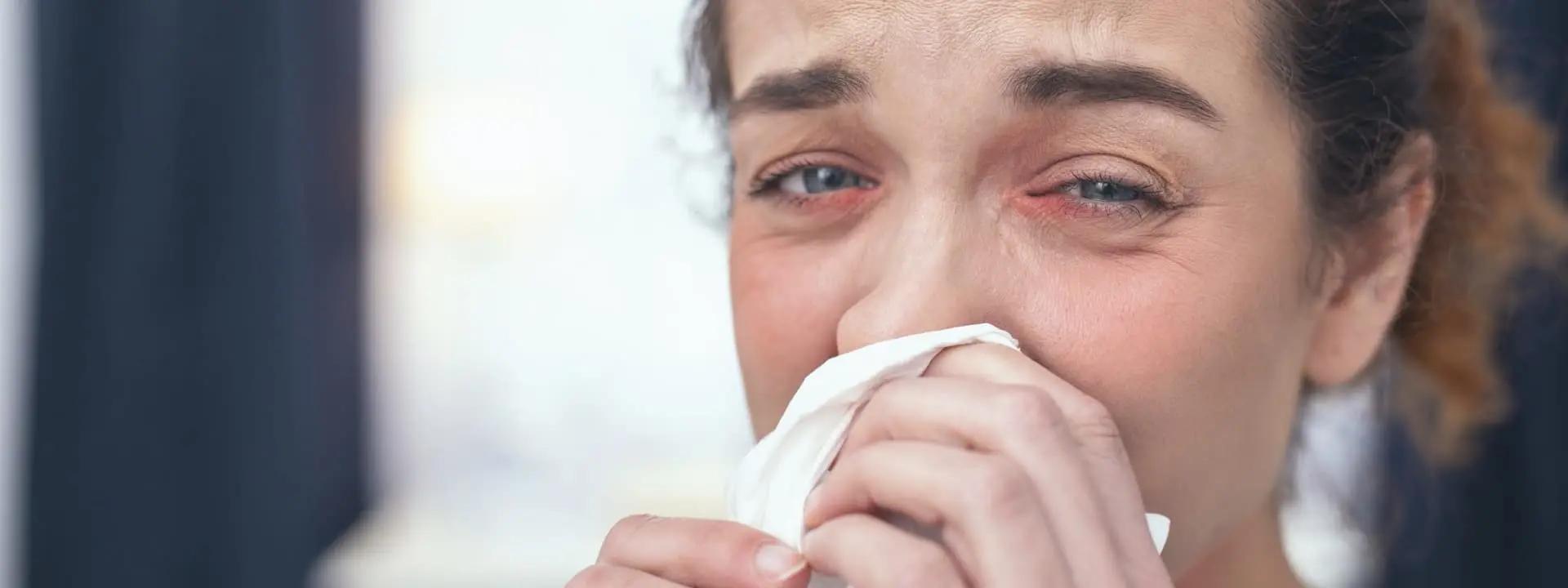Allergic Rhinitis
Allergic rhinitis triggers sneezing, congestion, and itchy, watery eyes in sufferers.
What is Allergic Rhinitis?
Allergic rhinitis, commonly known as hay fever, is an allergic reaction that occurs when your immune system overreacts to particles in the air that you breathe. These particles, known as allergens, can include pollen, dust mites, mold spores, pet dander, and more.
Symptoms
Common symptoms of allergic rhinitis include:
- Sneezing
- Runny or stuffy nose
- Itchy or watery eyes
- Itchy throat or ears
- Postnasal drip
- Fatigue
These symptoms can vary in severity and may interfere with your daily activities and quality of life.
Causes

Allergic rhinitis is triggered by allergens. Some of the most common triggers are:
- Pollen: Trees, grass, and weeds release tiny grains into the air to fertilize other plants. When inhaled by someone who is allergic, these pollens can cause allergic rhinitis.
- Dust mites: These are tiny creatures that live in bedding, upholstery, and carpets. They thrive in warm, humid environments and can trigger allergic reactions.
- Pet dander: Proteins found in the skin, saliva, and urine of furry pets like cats and dogs can cause allergic reactions in sensitive individuals.
- Mold spores: Mold grows in damp environments and can release spores into the air, which can cause allergic reactions when inhaled.
Diagnosis
To diagnose allergic rhinitis, a detailed medical history and physical examination are essential. Your doctor may perform allergy tests, such as skin prick tests or blood tests, to identify specific allergens that trigger your symptoms.
Treatment
Effective treatment for allergic rhinitis involves a combination of avoiding known allergens, medications, and sometimes immunotherapy.
- Avoidance: The first step in managing allergic rhinitis is to avoid exposure to allergens as much as possible. This might include staying indoors during high pollen seasons, using air purifiers, and keeping your home clean and dust-free.
- Medications: Over-the-counter and prescription medications can help relieve symptoms. These may include antihistamines, nasal corticosteroids, decongestants, and leukotriene inhibitors.
- Immunotherapy: For severe cases, allergy shots (immunotherapy) may be recommended. This treatment involves gradually introducing small amounts of the allergen to build up immunity.


